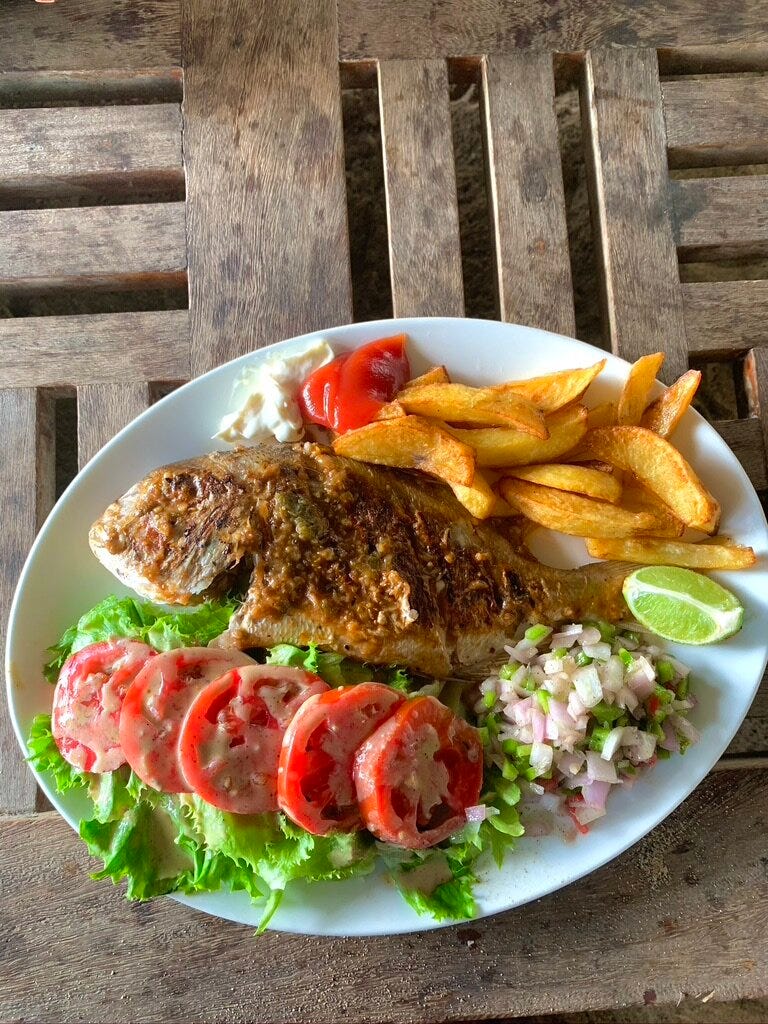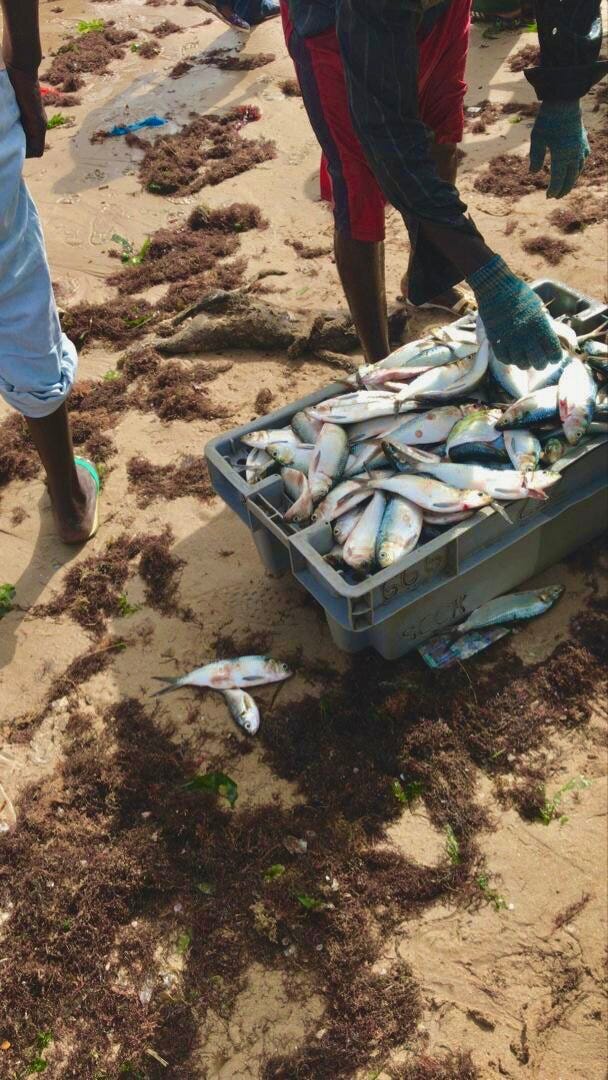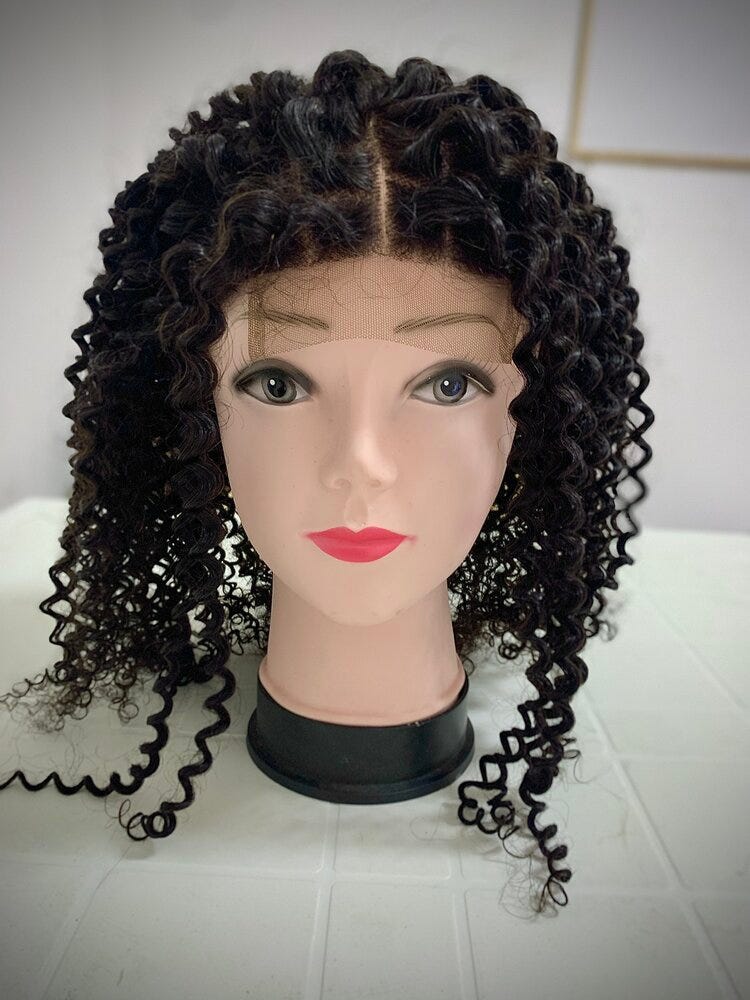The American Fish Monger: An Entrepreneur’s Journey in West Africa
At its core, all business and politics can be reduced to bread and water. All of our endless positioning, hedging, investing, planning, and predicting is a never-ending game of chicken where the first one to flinch finds himself with a smaller slice of the economic pie.
At the top, the game is not zero-sum. To lose merely means to be freed up to pursue some other exciting project, campaign, or cause. But for those at the bottom, they sometimes find that losing means that their slice of pie is cut so thin that they no longer have access to the basic necessities of life. Bread and water.
I’m not advocating for a change to this system, so long as it’s truly free market phenomena determining winners and losers. I’m just sharing the story of how I’m trying to bring pies of prosperity to Senegal and to West Africa, and in doing so, to myself.
If twenty-four months ago, when I quit my job to backpack the world, you would have told me I’d be selling fish in Senegal’s semi-desert region of Fouta, I probably wouldn’t have believed you. And yet here I am, the American Fish Monger from New York City.
We buy fish fresh from the pirogues on the beaches of Saint Louis in the north, or in Mbour south of the capital Dakar. The competition is as blistering and fierce as the beating sun in the heat of the day; wave after wave of bids and offers in languages I can’t understand. Lucky for me, everyone speaks money.
The highest bidder always wins, no matter the country or culture. The only question is who exactly will that be? Is it the group of veiled Muslim women who individually buy little by little, but collectively have more purchasing power than all of us? Or maybe it’s the hotel owner who’s trickle of foreign customers is quickly becoming a steady stream. Or perhaps it’s the young couple who just want a few small pieces of fish direct from the source.
Ah yes, but of course the entrepreneurs. The merchant class of the modern world who are also the backbone of the stuttering Senegalese economy. The group of men and women who have no interest in fish beyond the value and price it can fetch in distant markets in the country’s interior. I consider myself honored to be numbered among this select group. A group of daring risk takers? Economic dare devils? Gamblers? I guess it depends on who you ask. There’s no time for definitions right now anyways. The sun is getting higher, and fish can fry in the Senegalese heat just as easily as over an open fire.
Prices are high. Sky high. 50,000 CFA Francs a case to be exact because there hasn’t been fish for weeks. Why? You should ask the Sall administration. They’re the ones who secretly issued fishing licenses to predatory Chinese vessels in exchange for God knows what.
We look at the fish. It’s merde! Excuse my French. “Maybe we have more lucky tomorrow” my Senegalese partner says in broken English. “Yah maybe” I mutter under my breath.
As we fight our way back through the swarming crowds on the beach my head is swimming with questions. Mainly: what the hell am I doing here, and how the hell did I end up selling fish in Senegal?
The Plan
My original plan was a twelve-month pilgrimage from Casablanca, Morocco to the buzzing economic hub of Lagos, Nigeria. I figured I could start in Morocco and trek through the Western Sahara into the north of Mauritania. Speed through the country, and then hug the coast of Senegambia and Guinea until I made it to Liberia.
You see, I’m originally from New York but my family is Liberian. To have the opportunity to know and experience one’s own people and culture is a great prize in life, especially for the displaced African diaspora who, more often than not, don’t know exactly where we are from.
After an extended stay in Liberia, I was going to race through the Ivory Coast, explore Ghana, rest up in Togo, zip through Benin, and finally land in Lagos. Two years and a global pandemic later, and I still haven’t made it past Senegal. What keeps me from feeling like my plan was an utter failure? The knowledge that everything happens for a reason, and that there is no such thing as coincidence.
While I didn’t reach my goal of Lagos, Nigeria, I did realize my plan of starting a business. And one of the most important lessons I’ve learned throughout this entire process is that ‘if you don’t listen, then you will feel’, as my mom always says. Listen to your heart’s desire or feel the sting of regret. Listen to your spouse’s wants and needs or feel the pain of heartbreak. Listen to your customers or feel the shame of economic ruin.
I learned, and am still learning, that if you don’t listen to and deeply internalize your customers’ restraints, dreams, and economic desires, you can only expect to feel disappointment. And the idea that you can come into another culture and society peddling merchandise and services that you think are helpful and have value is at best a gross misunderstanding of basic economics, and at worst pure ignorance. And that’s where my story started: Gleeful. Utter. Ignorance.
It’s All Made in China
iPhones. The most popular product produced by the world’s most profitable business. I mean you can’t lose right? And on paper it made complete sense. But then again, things always look good on paper.
I come from a startup background that champions moving fast and breaking things. But my short-lived venture in the complex Senegalese iPhone market is a textbook example of why it’s important to at least do some market research before jumping into the deep end.
In this part of the world, it’s not uncommon for the average smart phone user to be three to four generations behind their western counterparts. This is even more true when it comes to pricey brands like Apple. I’m still seeing people use the iPhone 6 which was released seven years ago at the time this was published. Couple this fact with Apple’s attractive trade in model, which encourages users to upgrade annually, and you get low cost refurbished and used iPhones that can be easily imported and resold for a healthy profit. Or so I thought.
Sure, the demand is there. People here in West Africa covet the status and cool factor that top brands like Apple and Nike provide just as much as the West. The only difference is that there isn’t a federal reserve banking system that can flood the credit markets with enough cheap money to make a $1,500 iPhone make much practical sense. More simply put, consumers are exponentially more price sensitive. Solution? Knockoffs.
Go to the port here in Dakar and see it for yourself. Container after container after container of knockoff Gucci, Nike, Adidas, you name it. And I knew this going in. My mistake was in thinking that the copycat industry was confined to the fashion and garment markets. It wasn’t.
Consumers are either so inundated with high quality copycats that they can’t tell the difference from the real thing, or they are so price sensitive that they don’t care if it’s not the real thing, so long as it’s half off. And I can’t blame them, especially when even lookalike tech is indistinguishable from the original thing. Here in the streets of Dakar, you can’t tell the difference between a real and a fake iPhone XR without opening them both up and closely examining the guts; the exteriors are perfectly identical. My problem was that their prices weren’t.
“Why would I pay almost twice as much for the same thing?” A very valid question indeed posed by the slender Senegalese man. “But it’s not the same thing!”, I helplessly tried to explain. “Original, authentic, and imported from the United States,” he said in perfect French, “all of this stuff comes from China anyways.” Merde encore.
I tried for months to educate and convert skeptical buyers to my cause with little to no results. The final outcome? Slashed prices and huge losses in order to free up cash for my next ingenious venture. The human hair markets.
Kim Kardashian Straight
The customer’s last words before he walked off were still ringing in my head as I scrolled through the maze of hair manufacturers and resellers on Alibaba. “All of this stuff comes from China anyways.” The Zaoqiang Daying Company, the Guangzhou Rshow Group, Aunty Chyou’s Hair Emporium. This was going to be a nightmare.
As much of an equalizer the internet can be, sometimes too many options are just as bad as too few. I weaved my way through the matted net of reviews, products, and filters, until I dwindled the list down to three: Xuchang Moonhair, GS Commerce, and Harmony Hair.
When I tell people I’m doing business internationally in the developing world, one of the first few questions is always about whether or not I’m afraid of getting ripped off. And the obvious answer is of course I am. But that’s also why I’m so vigilant in vetting who I partner with. The intelligent investor knows that there are two foundational cornerstones that matter above the rest: honesty and integrity. In business, I’ve found that there’s always a way to make things work if someone isn’t the smartest or the savviest. But there’s never a way around bad character.
GS commerce was a no go from the start; bad reviews and their sales rep didn’t know enough English to close the deal. But the guy over at Moonhair was as smooth as butter. Kim Kardashian straight bundles with 40% margins. I was sold. Until I spoke to Jack that is.
The thing about honest people is that they are never the loudest or most persuasive. Their character does all the talking for them. In true newbie fashion, one of my first questions to Jack was about this Kim Kardashian straight hair I was so excited about. I couldn’t get enough of it, and Jack was the one who told me everything I needed to know.
“I can say ‘yes, we have’, but then you never know difference between real and fake Chinese grading system” Jack said in a heavy Beijing accent. Kim Kardashian straight, bone straight, grade 12A. They’re all just sly marketing ploys ratcheted up by unscrupulous manufacturers to sell more product to unsuspecting buyers. What’s really important, besides what the firm calls the hair, is how the hair is actually produced. Are the cuticles intact? Are the hair particles facing the same direction? Was the hair exposed to extreme heat or extreme cold? How were the bundles cut? Were the closures produced in North Korea or in Taiwan? What type of yarn did the firm use for its lace? The list goes one.
Over the course of four weeks, Jack patiently educated me on the ideal product for my specific customer profile, and I’m proud to say I’m a happy customer till this very day. The human hair market here in Senegal, while slow, is an important facet of the business that I believe will prove to be invaluable over the long term. It’s just not the difference maker that I believe food sustainability and agriculture can be in the near term.
And so, where does that leave us?
Lucky Tomorrow
Bread and water. It makes a lot of sense when you think about it. We all have to eat, and we all have to drink.
I’m starting with fish, but the possibilities are endless. I dabbled in technology, grew my understanding with beauty products, and now I’m the American Fish Monger trying to build a small fish emporium here in Senegal.
It’s a crazy story, and the odds are stacked against me. I know this. But whether or not I succeed is immaterial to the many lessons I will learn along the way. So, while I’m currently facing month over month losses and am on my third pivot, I face it all with a really big smile because it’s like the fish, right? “Maybe we have more lucky tomorrow.”
If you’re interested in learning more about working remotely, going abroad in general, or living, working, and investing in the African continent follow me @wehyeeba on all major platforms, or drop me a line at wehyee@intern-ally.com






